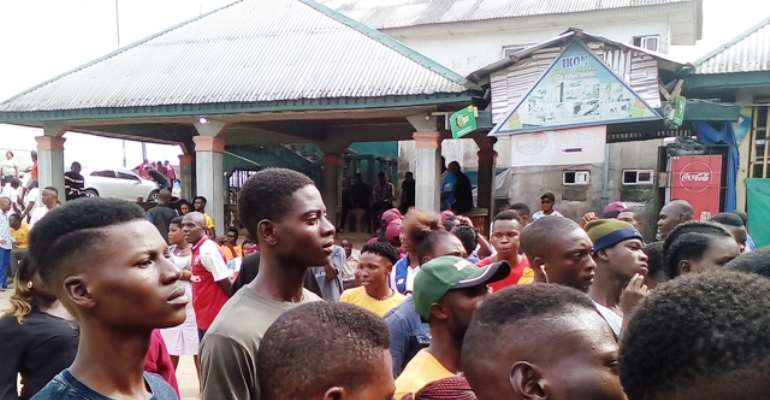Civil Servants, Victims Of Reforms Constitute Active Voters In Bayelsa Guber, Vent Anger...

Among categories of electorate that actively turned up to exercise their franchise in the Bayelsa governorship election are civil servants and victims of the State civil service reforms.
Pensioners also constituted an active group of voters in the election.
This was glaring in Yenagoa metropolis where this accredited reporter monitored the polls.
Although, civil servants had in the past, ranked among the most active and decided voters, the trend in this year's governorship election was stunning.
At various polling units in the Capital and its suburbs, civil servants were seen and heard speaking in hushed voices that they were out to cast their votes for candidate of their choice.
Top on their hushed discussions were the issues of welfare, sacrosanctness and respect for statutory benefits due workers and friendly tax system, preferably retaining Pay As You Earn (PAYEE) alone as tax from government workers.
Some of them were not alone, but turned up with members of their families registered in same units, and who share same sentiments for turning up to vote.
Others said they were wrongly dismissed or retired from the service without commensurate pay off and placement on gratuity and pension. This group also had their family members as supporting bout in the attempt to match words with the action they seemed to have hatched before the election day.
Most of this category of people hail from Epie/Atissa, core host of the State Capital, who believe the reforms affected them most, especially, workers of the Bayelsa State College of Arts of Science (BYCAS) which began at Agudama-Epie, wherein many of them were concenssionally employed as landlords irrespective of low qualifications and age.
Pensioners were also seen at many polling units in the metropolis eager to and actually cast their votes with the intention of improved post-service years.
Non-indigenes also filled up queues to chose candidate of choice. They were more concerned about a government that would boost commerce in the city. They empathised the other groups, on the premise of welfare, noting that if it is good with those indigenes, their businesses would also improve.
The sentiments of all these groups were in turn laced with another point discussed by the voters in various clusters that, they were scared of the consolidation promise by one of the parties.
Despite the grouses, some voters in the metropolis said they were used to one of the parties which they said had done a lot for the area and the state. Many of such persons jettisoned the complaints about reforms and welfare, and may have pinched their tents with their beloved party. Others said the recent political appointments in the state, touched their families and communities hence they were out to reward the party that carried their kith and kin along.
